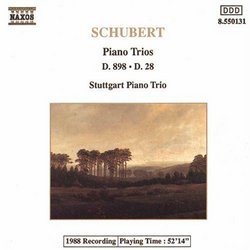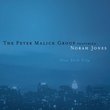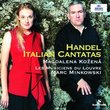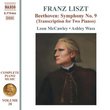| All Artists: Franz [Vienna] Schubert, Stuttgart Piano Trio Title: Schubert: Piano Trios, D. 898 & D. 28 Members Wishing: 0 Total Copies: 0 Label: Naxos Release Date: 2/15/1994 Genre: Classical Style: Chamber Music Number of Discs: 1 SwapaCD Credits: 1 UPC: 730099513128 |
Search - Franz [Vienna] Schubert, Stuttgart Piano Trio :: Schubert: Piano Trios, D. 898 & D. 28
 | Franz [Vienna] Schubert, Stuttgart Piano Trio Schubert: Piano Trios, D. 898 & D. 28 Genre: Classical
|
Larger Image |
CD DetailsSimilarly Requested CDs
|
CD ReviewsDelightful Playing of Equally Delightful Music Christopher Smith | Atlanta, Georgia | 07/03/2000 (5 out of 5 stars) "Schubert's two piano trios (the other one is also available on Naxos, featuring the same ensemble)are treasures--full of the relaxed and spacious lyricism that characterizes so much of his work. Both trios are very long, but after becoming familiar with their themes and irresistible melodies you'll wish they went on forever. They are definitely among Schubert's great works, but they have a curious place. More profound than the "Trout" quintet, they don't however carry the intensity of the later string quartets, or the mind-blowing emotional range of the final three piano sonatas. The Stuttgart Piano Trio is a testament to Naxos's recording philosophy. They are an experienced and distinguished group of musicians, yet they exist just outside the radar of superstardom and recording industry hype. However, they put heart and soul--not to mention considerable technique--into whatever they take on. They capture the spontaneity, joy and sense of play that Schubert must have wanted these pieces to convey. The recording quality is also very pleasing, since there is a true sense of equality and dialogue among the musicians, while the distinct individuality of all three instruments is preserved. On many chamber music performances, the microphones are often too close, so that the instruments seem to crowd together. No such problem here. Other than the Beaux Arts Trio recording, which is more expensive and includes some overly light string trios Schubert wrote in his very early youth, these are the ones you want." Rough and Ready Leslie Richford | Selsingen, Lower Saxony | 10/10/2004 (2 out of 5 stars) "This is something of a rough and ready CD. Listening to it, I felt that the Stuttgart Piano Trio was playing with a certain German robustness that did not become Schubert at all well. Also, the recorded sound is not as good as it could and should be: the piano is not clearly defined in the background, the violin is not quite loud enough and there are muffled knocking noises coming from the cello off and on - could they be plucked bass notes? All this became patently obvious when I compared the disc with the similarly-priced version of D.898 by Jean-Claude Pennetier, Régis Pasquier and Roland Pidoux from Harmonia Mundi. The French musicians play with much more delicacy and feeling, their interplay with each other is perfect and their timing absolutely right for this piece. There is really no comparison here, and unless you absolutely have to have the Naxos encore, the Trio D.28, I strongly recommend going for the Harmonia Mundi version. Note written on 23 November 2005: I have just listened to this disc using Benchmark's D/A converter DAC1. This makes the recorded sound a lot more convincing, with the above-mentioned weaknesses less apparent and a quite realistic cello. The knocking noises disappeared and were replaced by identifiable sounds. But the interpretation as a whole was still, to my mind, too robust and un-Schubert-like." Excellent! Musicus | Oslo, Norway | 05/04/2006 (5 out of 5 stars) "I have both this Stuttgart version, and the French Les Musiciens (Pennetier, Pasquier & Pidoux), and Stern trio - amazon-search: B00000279G - on these Schubert trios. Nice things can be said of all of them. I got the Stuttgart trio for ten years and am naturally getting a little bored of it, ready for other views on the trios. But it has been completely satisfying for many years. Telling that one of these readings/performances is better than another, in terms of stars, is like giving a wild cowslip primrose four stars and a lily of the walley five stars - it doesn't make sense.
When it comes to inspiration, perhaps I prefer the Stern trio. It is also very touching. The tempos are correct. It is perhaps not so satisfying when it comes to production values, but is very exciting. When it comes to delicacy of sound and playing, Les Musiciens are recommendable. The problem is the andante; they play it too prudently; it feels too slow. I don't find the playing much more exciting than the Stuttgart trio, either. I don't agree that the Stuttgart trio sounds coarse and direct, but this is certainly a matter of taste, if not a matter of what you are used to and expect of the music. The Stuttgart trios doesn't make the slow movements too slow, the andante is really played andante. It is perhaps not so delicate as Les Musiciens, but the proceedings feel more firm, more determined. The same goes for the Stern trio. So I still find this excellent! For Stuttgart trio's version of the trio D 929, search amazon: B0000013KP." |

 Track Listings (5) - Disc #1
Track Listings (5) - Disc #1







